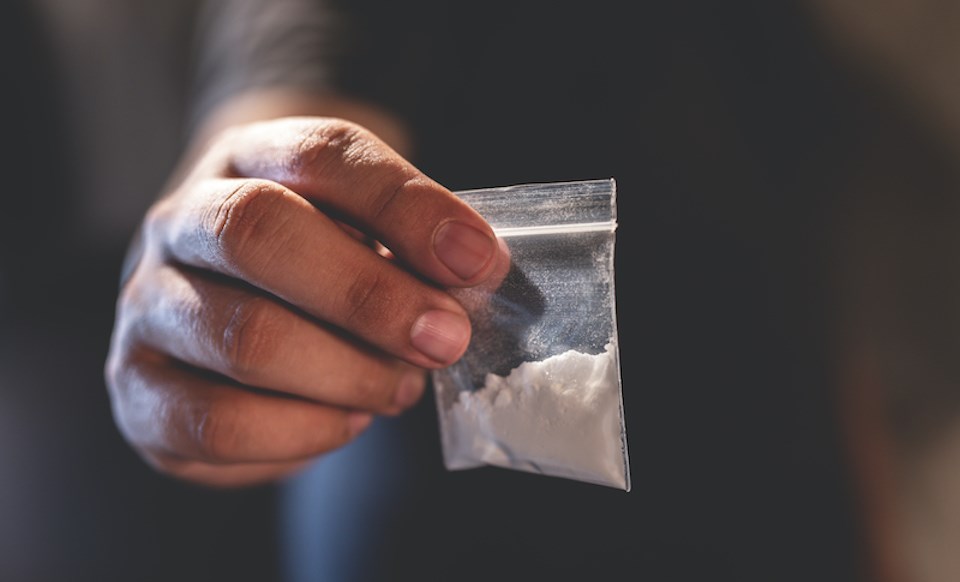In response to the latest overdose death statistics, Drug User Liberation Front (DULF) will hold an event with the BC Association of People on Opiate Maintenance (BCAPOM) and the Â鶹´«Ã½Ó³»Area Network of Drug Users (VANDU) on Wednesday (Feb. 9) to issue demands for immediate access to a safe supply of drugs and to hold B.C. politicians accountable for their response to the crisis that has claimed thousands of lives.
The group will also distribute three-and-a-half grams of cocaine, methamphetamine, and heroin at the regularly scheduled BCAPOM meeting at 2:25 p.m at the VANDU headquarters located at 380 E Hastings St.
With overdose numbers increasing by over 25 per cent from 2020 with 1765 overdose deaths to 2021 with 2224 overdose deaths, the advocacy coalition says the response from all levels of government is "reprehensible."
Not only is there an "accelerated rate of death," but Eris Nyx, a coordinator with the Downtown Eastside SRO-Collaborative, says the overdoses she's personally witnessed are "more extreme" — even when people survive. "In fact, the last [overdose] I responded to was last night outside of the Overdose Prevention Society. The [man] was really laid out...even when the paramedics were taking him away he wasn't cognizant, really," she tells Â鶹´«Ã½Ó³» in a phone interview.
"If I knocked on every single door of every SRO that I ever visited on outreach in an entire year...all of those people would be dead," says Nyx.
Nyx adds the overdose crisis in B.C. continues to accelerate every year and more people will die unless urgent action is taken by the federal government.
The vocal advocate says the majority of B.C.'s overdose deaths last year were preventable.
"People are using drugs that are highly volatile and highly dangerous," Nyx says, adding that intervention isn't always enough — even when staff at overdose sites are highly trained and naloxone kits are available.
Instead, Nyx, who is also a co-founder of the DULF, says the government needs to move forward with a federal exemption for a compassion club model to supply safer drugs to people who use drugs.
In October 2021, Â鶹´«Ã½Ó³»City Council a motion for the exemption. However, DULF has only received one email from the federal government since city council approved it, she added. As time goes on, she fears more people will die as a result of a toxic drug supply.
"I know as many people who have destroyed their lives with alcohol as I do with heroin. We need to regulate the deregulated market," she underscored.
Legalization of drugs in Canada
Over the past year, DULF has distributed drugs at events aimed at demonstrating the life-saving potential of legalizing drugs. The drugs were handed out and were tested via "FTIR spectrometry and immunoassay" and were free of fentanyl, fentanyl analogues, benzodiazepines, and other harmful adulterants.
Appointed as B.C.'s first provincial health officer on May 3, 1999, Dr. Perry Kendall first declared the overdose crisis to be a public health emergency in April 2016. He told Â鶹´«Ã½Ó³» that it is "inexcusable and unethical" that a clean supply of heroin isn't available to people who use drugs.
, a Canadian non-profit pharma company, can supply DULF with injectable pharmaceutical heroin. The company is led by Kendall, who has been corresponding with the organization regularly.
"I think it is inexcusable that it is not more widely offered in Canada," he said. "I can think of no other evidence-based, effective treatment for a life-threatening condition that is withheld from individuals who could benefit from it.
Have a look at a previous interview with DULF.




